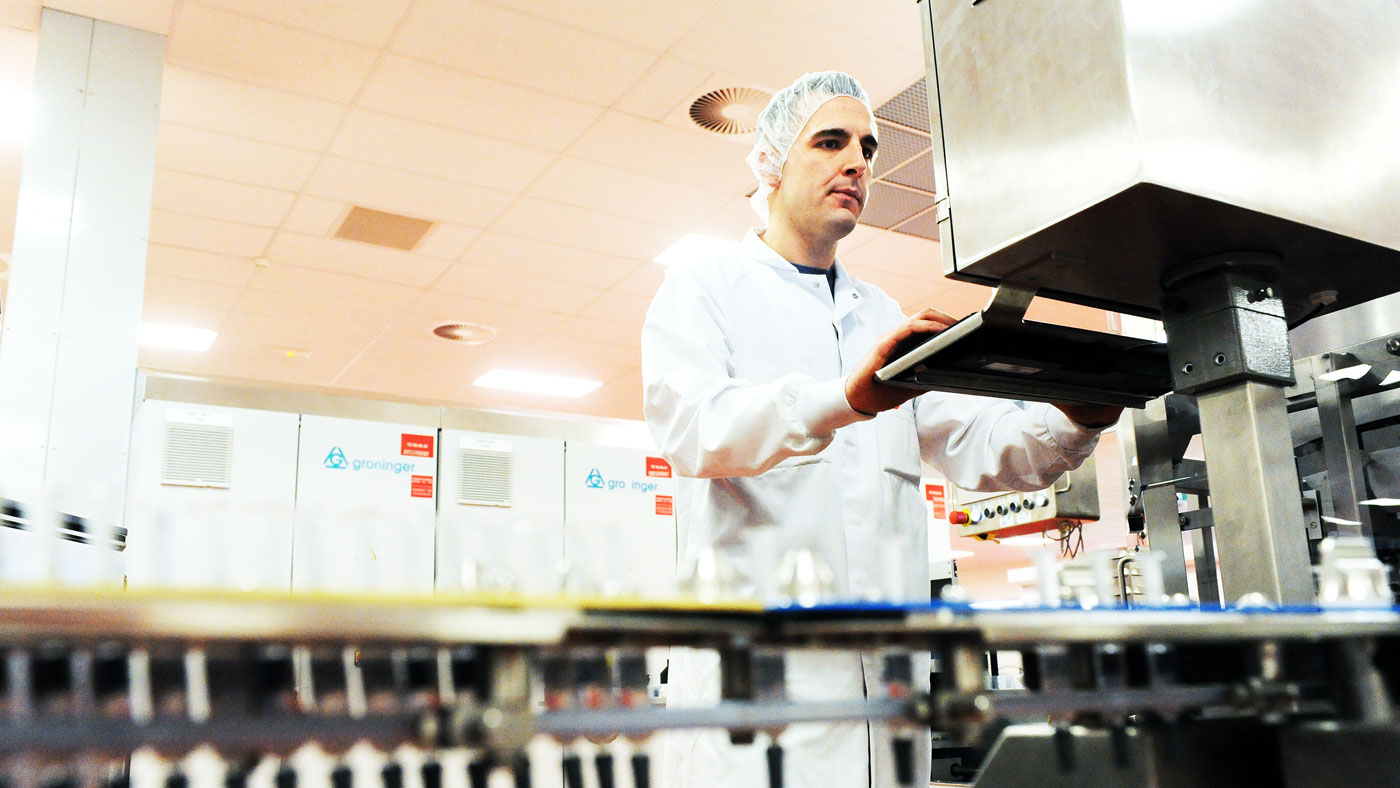Innovation in the UK: What's new?

When investing on behalf of our clients – and taking responsibility to support their future expectations - we're always on the look-out for interesting opportunities that we hope will provide capital growth and/or an income stream. We'd all love to be invested in the 'next big thing', but all too often they can be fraught with danger and the investment risk/reward does not stack up.
However, well-established innovative businesses with a future-orientation are definitely worth further consideration. Their focus on research and development means some of these companies are adding real value to their business model, thereby ensuring their future sustainability.
Much of the innovation we are seeing is technology driven – but when it comes to technological innovation, we need to start in the US – where it really is bigger and better. Think about Apple, Microsoft and Alphabet (Google's parent) who are the three largest listed companies by market cap in the entire US and dominate the technological innovation scene. Add Amazon and Facebook and you have five of the top six American companies - all in the technology sector. The United States is undoubtedly the clear global leader.
The Week
Escape your echo chamber. Get the facts behind the news, plus analysis from multiple perspectives.

Sign up for The Week's Free Newsletters
From our morning news briefing to a weekly Good News Newsletter, get the best of The Week delivered directly to your inbox.
From our morning news briefing to a weekly Good News Newsletter, get the best of The Week delivered directly to your inbox.
This accolade is in sharp contrast to the UK market, where the top 20 are mostly:
- Integrated oil companies (Royal Dutch Shell, BP)
- Miners (BHP, Rio Tinto, Glencore)
- Banks (HSBC, Lloyds, Barclays)
- Consumer staples (Unilever, Reckitt Benckiser)
- Tobacco (BAT, Imperial Brands)
- Beverages (SABMiller, Diageo).
At present, the largest pure-play technology company in the UK, which ranks a lowly 22nd place, is semiconductor firm ARM. Sadly, it's about to go the way of the dodo, having agreed to be acquired by Softbank in July for £24bn. With ARM gone, the dubious honour of being the largest UK technology stock will go to Sage, which designs accounting software for SMEs.
However, to conclude that UK PLC is devoid of innovation would be a mistake. Although on its way out, ARM is perhaps the best example of the UK's ability to punch above its weight in developing niche technologies. Founded in Cambridge in 1990, the company designs the blueprints that enable the production of energy-efficient computer chips that power products from smartphones to tablets to watches. Having successfully fended off US tech giant Intel, ARM is now the clear market leader in chip design with its ubiquitous products. Each day, more than 60% of the world's population touch a device carrying an ARM chip.
So, if you'd rather invest in a UK-based future-orientated company, than go State-side, where might you look?
Innovators in the UK: the five big names to watch
1. Smith & Nephew
UK innovation shines most brightly in the healthcare sector. Smith & Nephew is an £11 billion global medical technology business with a pioneering approach to the design of advanced medical products and services. They market several ENT products, including coblation wands for tonsil and adenoid removal.
Coblation is an innovative non heat generating process using radiofrequency energy which causes the tissue to break down rather than being burnt away. By removing targeted tissue and minimising damage to the surrounding structures, tonsillectomies are significantly less traumatic and painful than in the past. As a result, post-operative pain, complications and hospital stays are greatly reduced when compared with traditional surgical procedures.
Smith & Nephew also produces advanced wound management products. These include anti-microbial silver dressings, which use silver's natural anti-bacterial properties to prevent new infection getting into surgical wounds, while significantly reducing existing infections. Another innovation is state of the art hip replacement technology, which allows surgeons to perform minimally invasive surgery. This limits the need to cut soft tissue, improving hip stability and decreases the risk of dislocation. It also significantly reduces the time spent in hospital and allows early access to physiotherapy.
2. GlaxoSmithKline
Another example of innovation in the UK healthcare sector is GlaxoSmithKline – who boast an impressive track record of bringing ground-breaking products to market. They've developed a range of drugs to treat major diseases ranging from asthma and cancer to diabetes and mental health, and they are currently on the cusp of receiving approval for the world's first malaria vaccine. With £3.1bn invested last year in the development of new medicines and treatments, Glaxo's future contribution to global drug innovation looks secure.
3. Cobham
Our next domestic company with a history of technological advancement is Cobham, who designed the first breathing regulator for the US manned spaceflight in 1961, and every regulator since. More recently they have excelled in satellite communications, having designed the award-winning SAILOR 60 GX – a carbon fibre, lightweight maritime antenna that provides vessels with reliable, high-bandwidth satellite connectivity on board. In doing so it saves fuel, improves environmental footprint and streamlines equipment maintenance tasks through remote monitoring.
4. Centrica
Centrica, the owner of British Gas, may not seem the most likely company to feature in an article about innovation in the UK. Nonetheless, a couple of years ago they launched Hive Active Heating which allowed people to control both their heating and hot water from a mobile, laptop or even tablet. Incremental improvements have followed, with the latest iteration allowing customers to control the heating in different parts of the house through their mobile app.
This is a ruthlessly competitive market, which Google entered in 2014 after paying US$3.2bn to acquire California-based Nest Labs – a home automation company that designs and manufactures smart thermostats and smoke detectors. Other companies in this field include Honeywell, the world's largest aircraft engine manufacturer, as well as tado⁰, a niche German start-up with fewer than 100 employees. Even so, Hive continues to attract new customers and well over 200,000 people in the UK now use this product.
5. Just Eat
Perhaps one of the more unusual pieces of innovation we've seen recently is from Just Eat, who announced last month that they will trial robots to deliver takeaway orders in London this year (see video, below). The robots, which are developed by UK-based Starship Technologies, have onboard cameras to monitor their surroundings. If necessary, human operators in a command centre can take control. Whether these robots become the new norm for takeaway food delivery remains to be seen. If one thing seems certain it is that food delivery firms such as Deliveroo, as well as more traditional methods of delivery such as Royal Mail, should be watching their progress closely.
The recent history of innovation suggests that it's unlikely that the next Facebook or Google will spring out of the UK rather than from Silicon Valley. However, stranger things have happened, as all the companies we've discussed above clearly show. In our view, innovation in the UK looks well placed to continue making a significant contribution to global technology advancements for several years to come.
If you'd like to discuss innovative ways to enhance your investment portfolio, please get in touch on +44 20 7523 4554 or email wealthmanager@canaccord.com.
[[{"type":"media","view_mode":"content_original","fid":"100543","attributes":{"class":"media-image"}}]]
Important information
Investment involves risk and the value of investments and the income from them can go down as well as up. Past performance is no guide to future performance. Unless otherwise stated, the views expressed here are those of Canaccord Genuity Wealth Management. Nothing on these pages should be regarded as advice. It has no regard for the requirements of any particular person.
A free daily email with the biggest news stories of the day – and the best features from TheWeek.com
-
 6 sleek homes for minimalists
6 sleek homes for minimalistsFeature Featuring a Nordic-style condo in Montana and brand-new modern dwelling in Northern California
-
 Film reviews: ‘How to Make a Killing,’ ‘Pillion,’ and ‘Midwinter Break’
Film reviews: ‘How to Make a Killing,’ ‘Pillion,’ and ‘Midwinter Break’Feature A rich family’s outsider begins culling the herd, two men fall into a leather-heavy romance, and a quiet marriage hits a crossroads
-
 Political cartoons for March 1
Political cartoons for March 1Cartoons Sunday’s political cartoons include the new normal, the sign of times, and more
-
 What are the best investments for beginners?
What are the best investments for beginners?The Explainer Stocks and ETFs and bonds, oh my
-
 Received a windfall? Here is what to do next.
Received a windfall? Here is what to do next.The Explainer Avoid falling prey to ‘Sudden Wealth Syndrome’
-
 How to invest in the artificial intelligence boom
How to invest in the artificial intelligence boomThe Explainer Artificial intelligence is the biggest trend in technology, but there are fears that companies are overvalued
-
 What’s the difference between a bull market and bear market?
What’s the difference between a bull market and bear market?The Explainer How to tell if the market is soaring or slumping.
-
 Is it a good investment to buy a house?
Is it a good investment to buy a house?The Explainer Less young people are buying homes, opting to rent and invest in the stock market instead
-
 What is day trading and how risky is it?
What is day trading and how risky is it?the explainer It may be exciting, but the odds are long and the risks high
-
 What to know about investing in ETFs
What to know about investing in ETFsThe Explainer Exchange-traded funds can be a great choice for beginners
-
 Retail investors drive a flurry of IPOs
Retail investors drive a flurry of IPOsFeature After years of slowness, companies like Klarna and Gemini are reviving the IPO market